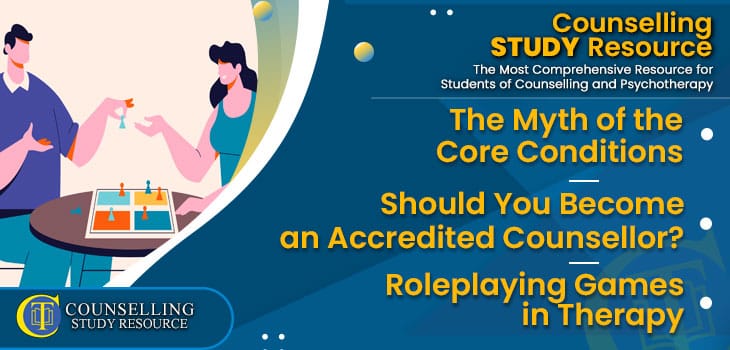See Counselling Skills Used in Real Sessions by Qualified Therapist
Real Sessions – Real Presentations – Real Skills
Gain the competence and confidence to use counselling techniques effectively!

In Episode 272 of the Counselling Tutor Podcast, your hosts Rory Lees-Oakes and Ken Kelly are back with our latest three topics:
The Core Conditions
In this section, Rory and Ken discuss a common misconception about the phrase ‘core conditions’, and where you might want to be careful when mentioning it in your assignments:

Real Sessions – Real Presentations – Real Skills
Gain the competence and confidence to use counselling techniques effectively!
Becoming an accredited counsellor is a personal choice, one that should be carefully considered. In this section, Rory and Ken look at both the reasons you may become an accredited counsellor, and also the reasons it might not be something you feel you need to do:

On-demand access to a rich lecture library covering theory, skills, and professional development for counselling students—Mapped to the UK awarding body criteria
“The Student Library has been BRILLIANT, I can’t recommend it enough!
It has been a lifeline in helping me prepare for practice and my first clients. If you’re considering it, go-for-it, it’s absolutely worth it!”
Kelly – Graduated and now in practice.
In this week’s ‘Practice Matters’, Rory speaks with Daniel Hand about the use of roleplaying games in therapy, and his new book Role-Playing Games in Psychotherapy: A Practitioner’s Guide.
The key points of this discussion include:
The Core Conditions

Get on-demand Certified CPD that is implementable in your practice
